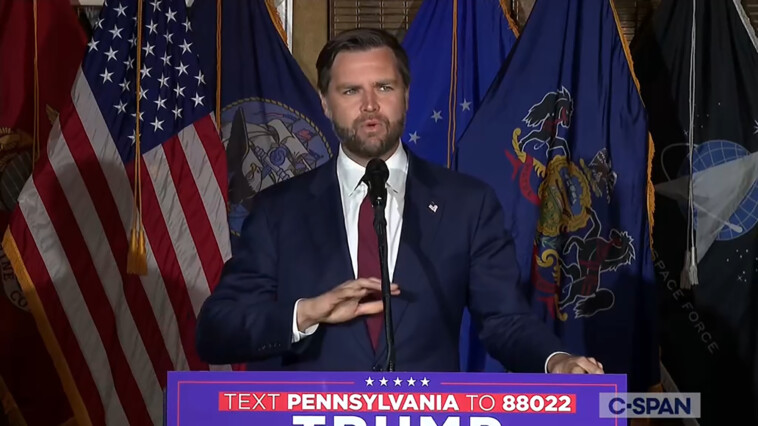Earlier this month, Republican vice presidential hopeful JD Vance suggested a bigger role for private healthcare at the Department of Veteran Affairs — and it drew swift backlash from Democrats.
But for some veterans who have had headaches in the past dealing with the VA, bringing in more of the private sector is sparking interest.
“I’ve spent hours on hold, waited weeks for appointments, and driven over an hour to another state for a 15-minute visit, using my own PTO,” Marine veteran Shelby Anderson, who suffered an on-base injury and lost a leg, told The Post.
Anderson described Vance’s remarks as “a breath of fresh air to hear.”
Recent surveys have indicated that the VA’s approval ratings continue to improve — a dramatic shift from a decade ago when the agency was mired in a waitlist scandal.
Still, there are lingering issues. While down considerably from the over 400,000 claims last year, the VA’s backlog sits at more than 240,000, according to the department’s most recent figures.
“I think that there are areas where the VA actually works very well,” Vance said in a recent interview on the “Shawn Ryan Show” podcast. “So I would not say, ‘get rid of the whole thing.’ But I would say, ‘give people more choice.’ I think you’ll save money in the process.”
Kate Monroe, a Marine veteran and the CEO of Vetcomms.us, an organization that is dedicated to helping fellow vets navigate the VA, argued that any move further in the direction of more private sector care must be done carefully.
“If we’re considering privatizing portions of VA healthcare, we must first ensure that the funds don’t end up in the hands of the same people mismanaging the system today,” she said.
Jon Perry, a veteran of the Army’s elite Special Forces, recounted waiting “over two months just to get the necessary appointments scheduled” while transitioning out of the military.
“Privatizing parts of the VA and allowing veterans to choose their own doctors could eliminate some of these issues,” he surmised.
VA already relies on some private care
Technically, the VA leans on the private sector to provide some care to veterans.
Roughly 35% of the VA’s budget for direct care gets diverted to the Veterans Community Care Program — where the VA refers patients to the private sector, according to the left-leaning American Prospect.
Jacqueline Simon, the policy director at the American Federation of Government Employees, the largest federal employee union in the country, warned that full-fledged privatization of the VA would radically upend veteran care.
“The VA has developed expertise and in dealing with the kind of complexities that the veteran patient population has, and so they won’t always be able to have access to that kind of expertise [in the private sector],” she told The Post.
Simon referenced a recent press release that cited studies that concluded that 79% of VA facilities had 4 or 5-star ratings from patients cHompared to 40% of hospitals outside the VA.
However, Michael Cannon, director of Health Policy Studies at the libertarian-leaning CATO Institute countered that it would be better for Congress to move in the direction of true privatization because free market forces will lead to better results for veterans.
“It is a socialized system that doesn’t have a functioning price mechanism. And so you get wild resource misallocations,” he posited.
“You’ll have gluts at some areas where the VA has excess capacity that no one’s using, and you will get shortages in other areas where there are long waits for care.”
For Monroe, who helps scores of veterans navigate the complex VA rating system, the question is crucial — because lives are at stake.
“Many veterans waiting years for basic care and surgeries … the rise in veteran suicides due to the lack of mental health care continuity is staggering,” she said. “We field no less than 50 suicide calls a week because the VA hotline often goes unanswered.”
“It’s no surprise that we lose so many veterans in the parking lots of VA clinics and hospitals.”





